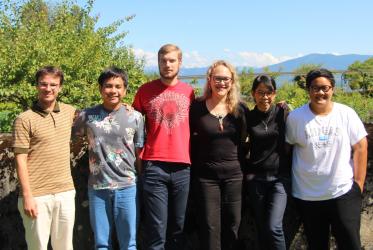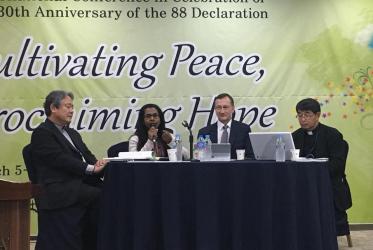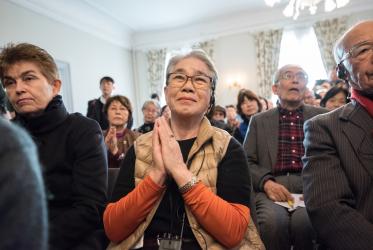Displaying 21 - 40 of 72
26 June 2020
New website launched for Bossey Hotel and Conference Centre
12 September 2019
WCC pays tribute to ecumenist pioneer
08 May 2019
Paving the way for ecumenical studies, learning English in Bossey
24 September 2018
#WCC70: Nathan Söderblom, ecumenical pioneer
29 August 2018
WCC welcomes “powerful sign of hope” on Korean Peninsula
08 March 2018
Trying to do good for the world
18 December 2017
May we remember them well, with dignity and respect
14 December 2017
Nobel winners plan next steps for banning nuclear weapons
10 December 2017
Peacemaking “a great and compelling life task”
09 December 2017
Emily Welty: tide of hope for a world free from nuclear weapons
19 September 2017
"We have our work cut out for us"
10 August 2017












